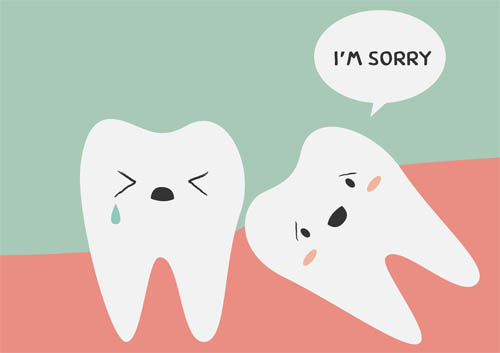Lip Service
October 20th, 2021

When you think of Dr. Robert Odegard, you naturally think of your teeth. But your dental professional is concerned with more than the teeth, as important as they are. All aspects of your oral health—gums, bite, tongue, mouth—contribute to your well-being. So many elements go into creating your beautiful smile, and your lips? They’re front and center.
- SPF—BFF
You already know that sunscreen is your best friend when it comes to protecting your skin. But don’t forget your lips when you’re slathering on the sunscreen! Delicate lip tissue is also susceptible to the sun’s damaging UV rays. Use a lip balm or lipstick with an appropriate SPF (Sun Protection Factor) for your skin type, and apply it liberally. Don’t forget to reapply every hour or two, after eating and drinking, and after going in the water. And if you’re protecting your children from the sun’s rays, check with your doctor about using sunscreen on young lips.
- Healthy Hydrating
Dry, chapped lips are no one’s go-to look. And while moisturizers and balms can help dry lips recover, there’s a simple preventative measure you can take to avoid or reduce dryness. You know how important water is for our bodies, and it’s essential for hydrating our lips as well. Make sure you drink the recommended amount of water each day for lips (and skin!) that are healthy and hydrated.
Not so healthy liquids? Alcohol. Alcohol is dehydrating, which undoes the benefits of that water you’ve been drinking. More than that, excessive alcohol consumption has been linked to oral cancer, especially when coupled with tobacco use.
- Toss the Tobacco
All tobacco users have an increased risk for oral cancer. Pipe and cigar smokers are particularly at risk for lip cancers, and smokeless tobacco users have a greater risk of cancers on the inner lip surface. Need another reason to quit? Smoking leads to an increase in lip lines (wrinkles) and a decrease in lip volume.
- Oral Exams
When you come to our Renton office for regular checkups, you can also get regular screenings for oral cancer and other oral conditions. While irregularities are often benign, lip cancer is one of the most common forms of oral cancer, and detecting cancerous or precancerous lesions as early as possible is important for treatment. If you have a sore or lump that doesn’t go away, a red or white patch of skin, bleeding or pain, or any other symptom that concerns you, talk to Dr. Robert Odegard.
Protect yourself from the sun, hydrate, use alcohol in moderation, give up tobacco if you are using it, and see your dentist regularly for examinations. These simple practices are beneficial not only for your expressive lips, but for your overall health and well-being. And feel free to spread the word—healthy habits and preventative care should be on everyone’s lips!




